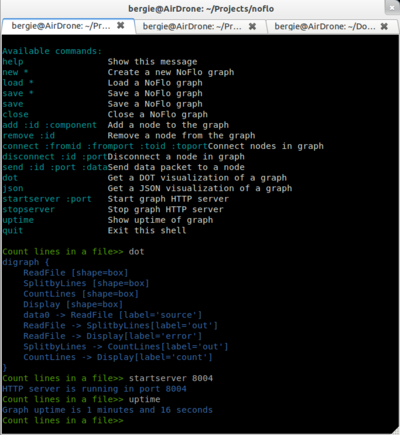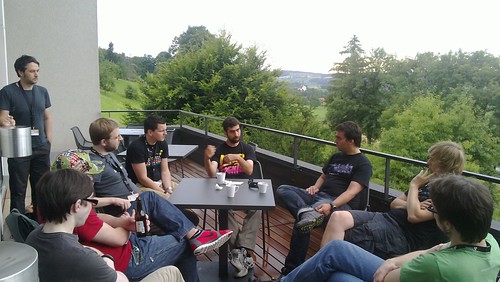
Like many, I'm currently in Berlin for Desktop Summit, the combined conference of the GNOME and KDE communities. It is a lot of fun to see all the familiar faces, and talk about the different projects going on! Now, one of the things I've talked about with people is NoFlo, my new tool that brings Flow-Based Programming to Node.js. What...
So, Symfony2 was released today. Now, you may remember me complaining about the fragmentation in the PHP community, as well as suggesting various technologies that have the power to bring the community together. But what I haven’t talked about is convergence in the area of PHP frameworks.
GObject Introspection is one of the hidden jewels of the GNOME stack: you write a library in C or Vala, and it becomes automatically available to a wide variety of languages and runtimes, including Python, JavaScript, Java and Qt.
Tame.js is an interesting new JavaScript transpiler that makes managing of asynchronous code easier. From the page:
Node.js 0.5.1 for Windows
So now JS is the x86 assembler of the web - not as pretty as it might be, but it gets the job done (GWT is the most hilarious case in point). It would be a classic case of worse is better except that Java only looked better from the bottom up. Meanwhile JS turned out to be pretty awesome.—Nick...

As I’ve written before, I’m concerned about the state of the PHP ecosystem. There are lots of good applications written in the language, but there is very little code sharing between different projects, mainly because of framework incompatibilities, but also because of quite a strong NIH culture.
So, Google Plus launched, the first truly viable Facebook competitor. The timing is quite interesting, given Google's recent failures with the Buzz microblogging platform, and the impending Facebook IPO. After a bit of time with Plus, here are some thoughts: Google already knows everything I do, so sharing stuff there feels less risky The UI is pretty and a lot...
any application that can be written in JavaScript, will eventually be written in JavaScript.—Atwood’s Law, from 2007
These projects again show how far the universal runtime can be pushed:

